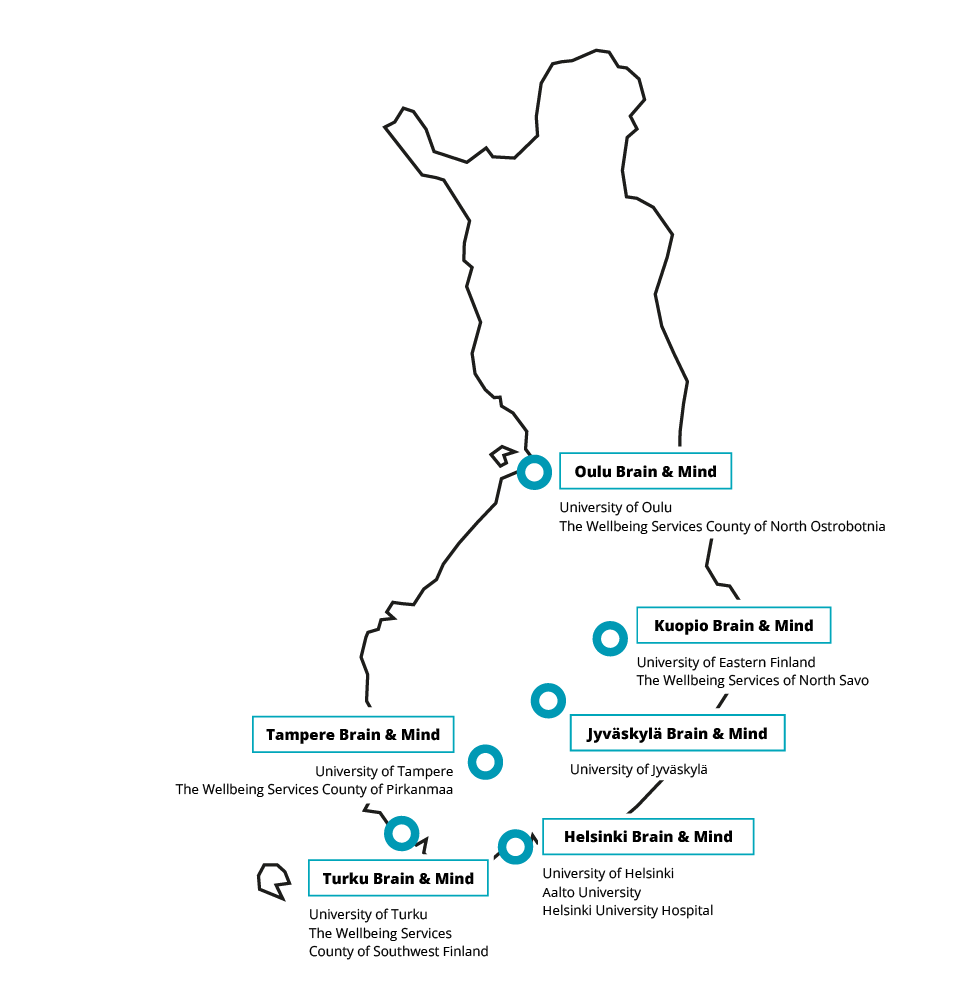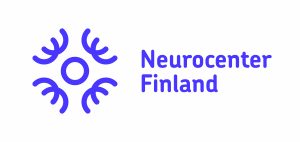Kansallinen Neurokeskus (Neurocenter Finland) on voittoa tavoittelematon yhteistyöverkosto, joka keskittyy neurotieteen tutkimuksen ja aivoterveyden edistämiseen. Tavoitteenamme on yhdistää yliopistot, hyvinvointialueet ja eri sidosryhmät rajat ylittävän yhteistyön ja innovaatioiden edistämiseksi terveysalan tutkimus-, kehitys- ja innovaatiotoiminnassa (TKI).
Neurotieteiden tutkimusta tehdään Suomessa erityisesti Oulussa, Kuopiossa, Jyväskylässä, Tampereella, Espoossa, Helsingissä ja Turussa. Näissä kaupungeissa toimivien yliopistojen lisäksi yliopistolliset sairaalat ovat keskeisessä roolissa neurotieteiden tutkimuksessa. Neurotieteiden tutkimuksen suhteen eri kaupunkien painopistealat ja osaaminen ovat monilta osin toisiaan täydentäviä.

Coded to connect – yhdessä olemme vahvempia!
Jäsenorganisaatioitamme ovat 7 yliopistoa ja 5 hyvinvointialuetta, joihin kuuluvat yliopistolliset sairaalat. Näistä muodostuu kuusi alueellista Brain & Mind -verkostoa Oulussa, Kuopiossa, Jyväskylässä, Tampereella, Turussa ja Helsingissä. Kuopiossa sijaitseva koordinaatioyksikkö toimii kansallisen ja kansainvälisen toiminnan keskipisteenä ja se koordinoi alueellisten Brain & Mind -verkostojen toimintaa ja yhteistyötä.

